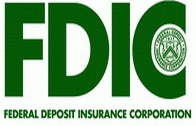Advertisement
FDIC Chair Bair notes Gulf Coast real estate went south after BP oil spill

The following are remarks by Federal Deposit Insurance Corporation (FDIC) Chairman Sheila C. Bair delivered on Sept. 15, 2010 to the University of South Alabama's 2010 Coastal Economy Outlook Conference in Mobile, Ala.
"Thanks for inviting me again. The last invitation was two years ago. At that time, we were right in the middle of the financial crisis. And as much as I would have preferred coming to Mobile, I had to take a rain check!
"The situation is much better today than it was in September 2008. The financial sector is now stabilized and the economy is in the early stages of a recovery, albeit a slow recovery. Still, as we meet today, we face a number of challenges. I would like to give you our perspective on the situation here on the Gulf Coast, and on the outlook for the U.S. economy and the banking industry."
Impact of the oil spill
"First, what about the effects of the BP oil spill? As you know, the effects on the local economy have been devastating. Tourism declined sharply across the Florida and Alabama panhandles just as the peak season arrived. Restaurants and entertainment venues were among the hardest hit. And it remains uncertain whether tourism will recover in the months ahead.
"Real estate values are also high on your list of worries. While home prices have stabilized around the country, they took a turn for the worse in Alabama metro areas during the second quarter. Analysts report that values on tourism-related properties, including rental homes, are most at risk in the wake of the oil spill. And the impact of the drilling moratorium, estimates say, could cost the state some 500 jobs and $140 million in economic output.
"None of this is news to you. But the reason I note these hard facts is that I want you to know that the FDIC is very much aware of the problems you're facing. And we've been working closely with local bankers to understand these problems and what they mean for their borrowers. We have advised our banks in the area to exercise flexibility towards affected borrowers and businesses.
"The federal and state banking agencies issued guidance in July encouraging Gulf Coast banks to work with their customers and consider measures to assist creditworthy borrowers affected by the oil spill. Our supervisory staff has been monitoring the most affected banking institutions. And we've had frequent contact with our regulatory counterparts to make sure our efforts are coordinated.
"Tom Dujenski, our regional director, met with bankers here in Alabama on Aug. 12th. And I'll be meeting with a group of local bankers this afternoon to hear their concerns first-hand. The bottom line is we're doing everything we can to help local bankers and their customers deal with the fallout from this very difficult situation. We know that the region will recover over time, and will emerge stronger than ever. We want to be sure FDIC-insured institutions are there for their customers in good times as well as bad."
U.S. economy and banking outlook
"Next let's talk about the U.S. economic outlook. We saw a fourth consecutive quarter of GDP growth in the second quarter, but at a much slower pace—just 1.6 percent. Meanwhile, expectations for growth in the second half of the year have been marked down significantly in recent months to a similar slow pace.
"The question on everyone's mind is: Is this the start of a double-dip recession or just an early cycle slowdown? The answer is that nobody knows for sure. We're somewhat in a wait-and-see posture. But whether we end up with a few more quarters of sub-par growth or see a serious downturn, we should recognize that it is a direct result of the financial crisis, and the impairment of real estate values and balance sheets that resulted from it.
"In their landmark study of financial crises around the world, Carmen Reinhart and Ken Rogoff note three major economic effects that have taken place in almost every historical instance:
►A deep and prolonged collapse in asset prices,
►Large declines in employment and output, and
►A sharp rise in government debt.
"We have seen all three of these in the wake of the 2008 financial crisis. The recession made a large dent in the balance sheets of households. Their net worth declined by some $17.6 trillion over five quarters. FDIC-insured institutions have been hurt as well. They've set aside over half a trillion dollars in loan loss provisions over the past 10 quarters, and they're not done yet. At the same time, consumer spending has slowed markedly along with bank lending. Over the summer, a weak economy and renewed concerns over sovereign and municipal debt loads contributed to equity market volatility and a falloff in consumer and business confidence.
"One thing I want to emphasize is that this is not entirely unexpected in the wake of the worst financial crisis since the 1930s. Restructuring is difficult, but necessary. And it takes time. But the other thing I want to emphasize is that we are making significant progress in this process of balance-sheet repair.
"If we stay the course and follow through on needed financial reforms, we can look forward to a stronger economy in 2011 and a more stable financial system in the years ahead.
"What are some of those signs of progress? Households have gained back some $6.3 trillion in net worth over the past year thanks to higher stock prices, higher housing prices, and lower debt levels. FDIC-insured institutions earned $21.6 billion in the second quarter, their biggest profit since before the recession. Their ratio of noncurrent loans has fallen for two quarters after 14 straight increases that saw the industry's noncurrent rate rise more than seven-fold.
"Meanwhile, the industry's Tier 1 risk-based capital ratio has risen for seven quarters to an historic high of 12.44 percent. Corporate profits in the second quarter were 39 percent higher than a year ago, and business inventories as a percent of sales have been whittled down to pre-recession levels. So the economy is growing, though more slowly than we would like. And financial institutions are getting stronger, but they still have more work to do.
"What are some of those challenges? First and foremost are the commercial and residential real estate markets, where values remain as much as 30 or 40 percent below peak levels in some areas of the country. We know that problems in commercial real estate and construction lending have been acute throughout the FDIC's Atlanta Region. High concentrations in CRE loans have been especially prevalent, frequently exceeding 300 percent of capital. And, as real estate prices have fallen, we have seen the median ratio of non-current CRE loans in the region rise ten-fold over the last two and a half years.
"Given this difficult situation, we have been doing what we can to help lenders work out their problem loans and to help borrowers maintain access to credit. Federal regulators released supervisory guidance last fall that encouraged banks to continue making good loans to qualified commercial real estate borrowers. We also urged banks to work with borrowers that are experiencing difficulties in their repayment capacity because of economic conditions.
"This is not a policy of unconditional forbearance. We are promoting the sound restructuring of problem loans around today's cash flows and today's low interest rates. Our guidance provides specific examples that show how banks can arrange workouts or restructure problem loans while still complying with accounting standards."
Regulatory reform
"I also want to say just a few words about financial regulatory reform. From the start of the debate, our position has been that we need fundamental reform in three areas:
►One—ending "too big to fail" by creating a credible resolution authority for large banks, bank holding companies, and systemically important nonbank institutions.
►Two—establishing a council of financial regulators to deal with macro risks in the system and close the gaps in regulatory jurisdiction that allowed risks to grow in the shadow banking system, and
►Three—creating a watchdog focused on protecting the consumer in the financial marketplace and leveling the playing field between banks and thrifts - which already are subject to consumer regulation - and nonbank providers which often are not.
The landmark legislation passed by Congress in July provides for all these things. But the task that now falls to us as regulators is to promptly and effectively implement these measures through new regulation and needed organizational changes.
"The FDIC has created an Office of Complex Institutions to work with our counterparts in monitoring systemically important institutions and seeing that they establish credible resolution plans that will ensure that they are not too big to fail. It is vitally important that these resolution plans—required by statute—not be seen as simply "papering the file."
"They need to clearly lay out the structure and activities of the organization, as well as its counterparty exposures, so that we are never again forced to make the choice between bailing out an institution or creating real and lasting harm to our financial system.
"The FDIC will also sit on the Financial Stability Oversight Board, or FSOC, whose task it will be to identify and address macro risks and coordinate the regulation of systemically important institutions. It is vitally important that this group be vigilant in monitoring the risks building up in the system, and that regulators have the courage to address those risks early, before they damage our economy.
"In addition, the FDIC has created a new Division of Depositor and Consumer Protection to sharpen our focus on consumer protection issues. In doing so, we are acting on our longstanding belief that consumer protection and safe and sound banking are two sides of the same coin.
"One area where we are making progress is establishing stronger, more uniform global bank capital requirements. I have just returned from Basel, Switzerland, where the G-10 Governors and Bank Supervisors reached a compromise over the weekend on stronger standards for the quality and quantity of bank capital for around the world.
"The standards are not as high as many of us would have liked. But it was important to achieve international agreement. And there should be no doubt that these new standards are a major improvement over current requirements.
"Importantly, the G-10 Governors and Bank Supervisors made clear that systemically important financial institutions would be required to have loss absorption capacity beyond the minimum standards we announced on Sunday. That work continues in the Basel Committee and Financial Stability Board.
"By raising capital standards for systemic institutions and implementing robust resolution mechanisms, we will go a long way to level the playing field between the world's financial giants and the community institutions that make loans to consumers and small businesses right here in Alabama."
Conclusion
"By nature, I'm an optimist. And being from Kansas, I'm also very direct. So let me be direct by urging that we avoid the blame game for the situation we're in today. To be sure, there is plenty of blame to go around, for industry and for regulators, for the mistakes that have been made in mortgage finance, in banking and bank regulation, in economic and tax policy, and in energy and environmental policies and practices.
"But what's needed now is to stay focused on the things that will give us results going forward. That means putting our financial regulatory house in order with a prompt and careful implementation of the new Dodd-Frank reform law. It means strengthening capital standards and creating a strong and effective consumer financial protection framework. And it means working with people in communities across America because we know that Washington doesn't have all the answers.
"Obviously, these are very challenging times for you. And it's likely that the pressure will remain for some time to come. Still, I believe that the long term outlook is good. There will be more challenges ahead before the recovery gains momentum. There are no quick fixes. But as the recovery strengthens, and I am optimistic it will, America's banks will provide the credit to make it happen. And ultimately, we'll emerge with a more stable financial system and a stronger, more balanced U.S. economy. Thank you."
For more information, visit www.fdic.gov.
About the author





